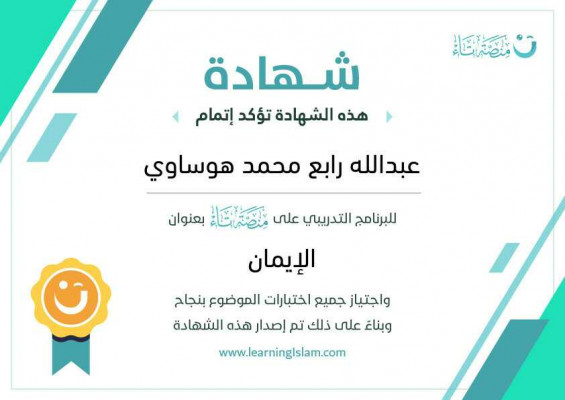Current Section: model

Lesson Gift
Allah is generous and He loves generosity, and the Messenger of Allah ﷺ was the most generous of people. He used to accept gifts and give something in return and asked people to accept it. He encouraged the giving of gifts, and the act of giving was one of the most beloved deeds to him.
The ownership of an item immediately without paying for it.

The statement: 'Ownership' is an indication that the contract of a gift is a type of ownership contract.
What is meant by an asset: All types of assets including financial and other such things.
And the term 'possession of an asset' is excluded from the term 'gift of benefits' for two reasons:
The ownership restriction excludes someone being overlooked for repaying a debt-free, even if it was by the wording of a gift; because being forgiven for repaying a debt is considered the removal of something as opposed to receiving it like a gift.
The word gift is applied to a present that is given, it falls under the heading of righteousness and kindness, keeping close ties and general good.
The Ruling of Gifts
The gift is recommended; because of how it brings hearts together, the gaining of reward, and bringing about love and affection. The Quran, Sunnah, and the unanimous consensus indicate the desirability of gift-giving.
The legislation urges gift-giving because it purifies the souls from the evil of miserliness, stinginess, and greed, and how it brings the hearts together, and strengthens the bonds of love between people, especially if it is for a relative, neighbor, or one with whom you have enmity. Disputes may occur, disharmony and plotting against others may occur, and ties of kinship may be severed, so gifts can purify the hearts and remove everything that causes division between people. And whoever gives something for the sake of Allah, will be rewarded.

'Aisha said that Allah’s messenger ﷺ would accept a present and give something in return for it. (Al-Bukhari, 2585).
The Messenger of Allah ﷺ was the most generous of men, and he was the most generous during the month of Ramadan when Jibril visited him every night and recited the Quran to him. During this period, the generosity of the Messenger of Allah ﷺ was faster than the wind.(AL-Bukhari, 6, Muslim, 2308)
The Fundamental Rules of Gifts
Scholars have agreed that offering something is one of the pillars of gift-giving, but they differed regarding it. The gift is contracted by the offer alone (this is whatever is said by the giver to indicate the gift), but the one accepting the gift does not possess the item until he accepts it and takes possession of it. So acceptance and possession are such that, the effects of the gift can take place and not for a contract to be established.
Terms for Gifts
Scholars differed as to the requirement that the gifted be known and not unknown, and about the requirement that the gift-taker be specific and not vague.
Whoever gives a gift to an official, employee, or others, to gain something that he has no right to, and is forbidden for both the gift giver and taker. This is because it falls under bribes where both the taker and giver are cursed.

And if he gives a gift to stop injustices against himself, or to give him his right that is due to him, then this gift is forbidden for the gift-taker, (to keep) but it is permissible for the giver to preserve his right and ward off the evil of the gift-taker.
The Prophet ﷺ appointed a man from the tribe of Bani Asad, called Ibn Al-Utabiyya to collect the Zakat. When he returned (with the money) he said (to the Prophet), "This is for you and this has been given to me as a gift." The Prophet ﷺ stood up on the pulpit (Sufyan said he ascended the pulpit), and after glorifying and praising Allah, he said, "What is wrong with the employee whom we send (to collect Zakat from the public) that he returns to say, 'This is for you and that is for me?' Why didn't he stay at his father's and mother's house to see whether he will be given gifts or not? By Him in Whose Hand my life is, whoever takes anything illegally will bring it on the Day of Resurrection by carrying it over his neck: if it is a camel, it will be grunting: if it is a cow, it will be mooing: and if it is a sheep it will be bleating!" The Prophet ﷺ then raised both his hands till we saw the whiteness of his armpits (and he said), "No doubt! Haven't I conveyed Allah's Message?" And he repeated it three times. (Al-Bukhari, 7174, Muslim 1832). Al-Khowar: The sound of a cow. Al-Rugha: The sound of camels. Al-Ufra: white tinged with brown. Tay-'ar: Shouting and making a loud noise.





